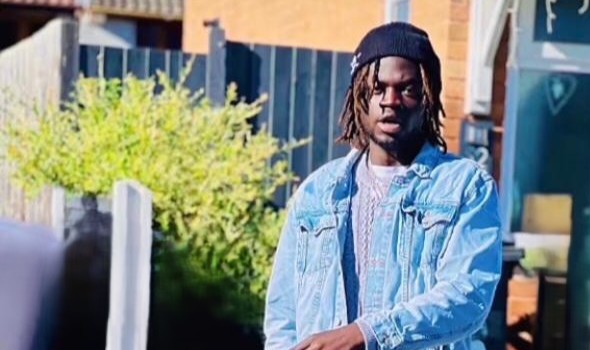Music for the moments I can’t explain
Music for the moments I can’t explain

When Richard sings, he says, he feels more at ease. Not just entertained or distracted, but understood. “It brings out the voice that I cannot,” he says. “It brings out an explanation, tells more of the situation, or a feeling, bad or good. The pain, the moods. That’s what it does to me.”
Now 26, Richard has been in the UK for three years. He came from Uganda, where he no longer felt safe, and claimed asylum on arrival. Since then, he’s been in limbo.
“I have no status. I don’t know what the situation is right now, because I haven’t heard from the Home Office,” he says. “I don’t know when everything is going to be resolved, when it is all going to pile up, when I’m going to have the next interview.”
He’s not allowed to work, and not sure whether he can study, one of thousands of young people in the UK stuck in indefinite waiting. He currently receives £130 a month from Hope Projects, a charity that provides housing and assistance for asylum seekers, and has just been granted Section 98 emergency support, a short-term provision for those awaiting longer-term support decisions.
Despite this, he carries it all lightly. “I wouldn’t say it’s bad,” he says. “I’m just grateful.”
In this uncertainty, Richard spends his days walking, reflecting, and writing songs. What he writes depends entirely on his mood, “It just depends on what I’m singing at that time, on that day, on my mood,” he says. Some days, music is an outlet for sadness. “If I’m feeling down, depressed, or stuck, I can just do it to cover up,” he explains. Other times, it’s about feeling something brighter.
He takes inspiration from Jamaican artists like Protoje and Chronixx, whose lyrics speak to both struggle and spirit, but also admires UK artists like Dave and Central Cee, even if their style is different. His own musical style is eclectic: a mix of Afrobeats, reggae, and dancehall. “Dancehall is for the club,” he grins. “Reggae is all about the message.” Each genre carries its own kind of energy, but more than anything, Richard says, his music is about feeling. “People use lyrics to say what they can’t say with their mouth,” he explains. “That’s what I do too.”
Back in Uganda, music was already woven into his days, though it was more private then. He wasn’t recording, but always writing, just for himself. And when he wasn’t writing, he was playing cricket. He played professionally, a part of his life he still misses. “I’d love to play again,” he says.
But Richard’s dreams for the future are expansive. Professionally, what he really wants to become is a plumber. Music, he says, is “just for me”, a space of expression and release. Plumbing is what he hopes to build a career in. He’s already tried to study, but the indefinite uncertainty of his asylum status made it nearly impossible to concentrate.
After his first interview for a plumbing traineeship, he explains that “things somehow went wrong for me.” He was rejected, had to reapply, and at the same time was dealing with eviction and being moved into Hope Projects accommodation. “I had a lot of stuff on my mind,” he says, with one upheaval after another, all making it harder to focus.
He’s applied three times now. He still wants to start again, but the waiting has worn on him. The biggest challenge, he says, is being here without working.
“It affects me a lot. I don’t work, and also, I don’t know when everything is going to be resolved. It’s just a load of things right now.”
And what would getting his status mean to him?
“It means a lot.” He laughs. “It means life can move on like any normal person,” he says. “Right now, I feel left out. Like life is not yet complete.”
It would mean being able to open a bank account, or a savings account. It would mean being able to get a job, to earn his own money, to move through the world without constantly checking for permission.
When asked what it would mean to have the chance to record, he smiles: “I would do my best, and see what comes out of it. I believe I’m good.”
Listen to short clips of Richard's performances here and here


